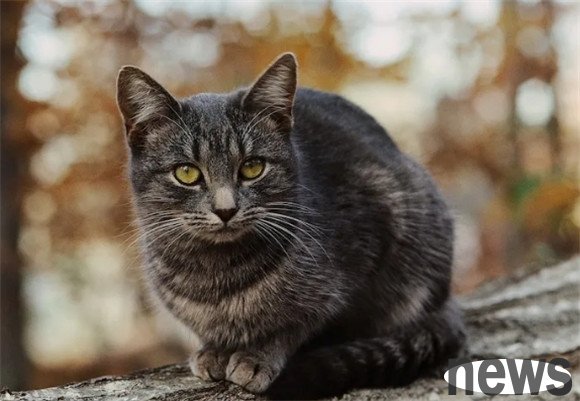Why do cats hens squat
1. Prepare to attack
The "heen squat" posture allows cats to react at any time. Once they notice any movement, they can quickly respond to "pulling their claws and running wildly". This is also one of the common actions of many cats before attacking.
2. Comfortable
Just like people like to cross their legs or lie leisurely like Ge You, your master may like the "hen squat" posture. As long as the cat does not perform abnormally, you don’t need to worry too much.
3. Keep warm
The cat's meat pad can sense temperature and emit heat. In winter, in order to reduce the loss of heat, they will hide their claws under their bodies and curl up, which can effectively reduce heat loss and achieve the effect of keeping warm.
4. Pain
When cats feel pain in their internal organs or in their abdomen, they cannot relax themselves. Squatting can relieve their pain. However, if you are accompanied by symptoms such as poor mental state and loss of appetite, you need to pay attention. This may be a sign of a cat getting sick, such as the worrying "cat's belly transmission."

What causes it?
In addition to stress, any situation that causes abdominal pain in a cat may cause the cat to hunch its back and squat in a hen. Mainly include:
➤ Gastrointestinal obstruction: hair accumulation, improper diet, eating cooked bones (ripe than raw ones), tumors or intestinal distortion.
➤ Constipation: accumulation of hair in the intestine, foreign bodies, intestinal inflammation or perianal damage (pain causes drag and unwilling to defecate, and eventually hold back constipation), dehydration, environmental changes, etc.
➤ Diarrhea: May be caused by infection, inflammation, improper diet, parasites.
➤ Abscess: Stray cats are more likely to appear and are usually caused by cat bites.
➤ Cancer: More common in middle-aged and elderly cats.
➤ Renal Disease: Causes chronic or acute pain.
➤ Cat plague: Cats of any age may be infected; more common in kittens and wild groups.
➤ Pancreatitis: Hyperlipidemia, trauma, exposure to organophosphate and infection may all be caused.
➤ Urinary tract diseases: urinary tract infection, inflammation, urinary cessation. Male cats are more likely to experience urinary cessation, which can endanger life in a short period of time.
Step 1: Palpation and checking
Because cats show hen squats, it may be mainly caused by abdominal pain or discomfort.
So master some palpation techniques and make a preliminary judgment if the cat's bladder is swollen and held urine, or if the intestines are hard and have constipation. (There is a video at the end of the article)
The bladder is at the base of the thigh (yellow)
The intestine is a little behind, and touch it appropriately on both sides
If the cat does not have the above abnormality, or the parents cannot touch it for the first time, or the cat is not very cooperative...
You can also add a little more force to touch it around your stomach...
One day, oranges maintain this squatting position and stay idle for a few minutes
So I have an excuse to start checking, and the result:
The facial expression is relaxed, and I actively raise my legs to touch, and my tail swings naturally → No abnormalities
When touching, mainly observe whether the cat has any abnormal symptoms such as pain or dodging:
Step 2: Comprehensive judgment
Behavior: dodge (may not like to touch normally), escape quickly, and resist...
Sound: howl painfully, and may even send out "hiss" and "ha" attack warning...
Expression: ears are airplane ears, and expression is painful...
Limbs: the tail is close to the side of the body, impatiently fluttering the tail...
Overall: it may be accompanied by loss of appetite, listlessness, reduced exercise, licking the abdomen (painful parts), redness, swelling and inflammation on the neck or urinary tract, etc.
No pain, moderate pain, severe pain, and facial expressions
Step 3: Assess whether medical examinations are needed
✔ If the cat enjoys his stomach, and has no abnormalities in his spirit, appetite, and bowel movements, you can rest assured first.
Because cats occasionally use this posture, they may be a sudden stop, unaccommodation to the environment, shrink back when they are cold, and a preparatory action before starting a sprint.

However:
× If a cat is constipated for the first time, you can try hair cream/tablets + frequently combing hair + encourage drinking water. If the constipation does not relieve the next day, or is accompanied by other abnormalities, it is recommended to seek medical treatment as soon as possible;
× In the case of complete obstruction of the urethra, the cat may show signs of uremia in 24 hours, and some cats may die due to heart arrhythmia, acidosis, etc. in 72 hours. Therefore, if you find that the cat is urinary in urinary tract, you should seek medical treatment immediately;
× Many chronic inflammations and diseases, cats are "tolerated if you can" in the early stages of symptoms, so if you find that the cat has a long-term hen squat and is accompanied by any changes in appetite, spirit, and activity, it is recommended to contact a doctor as soon as possible.
